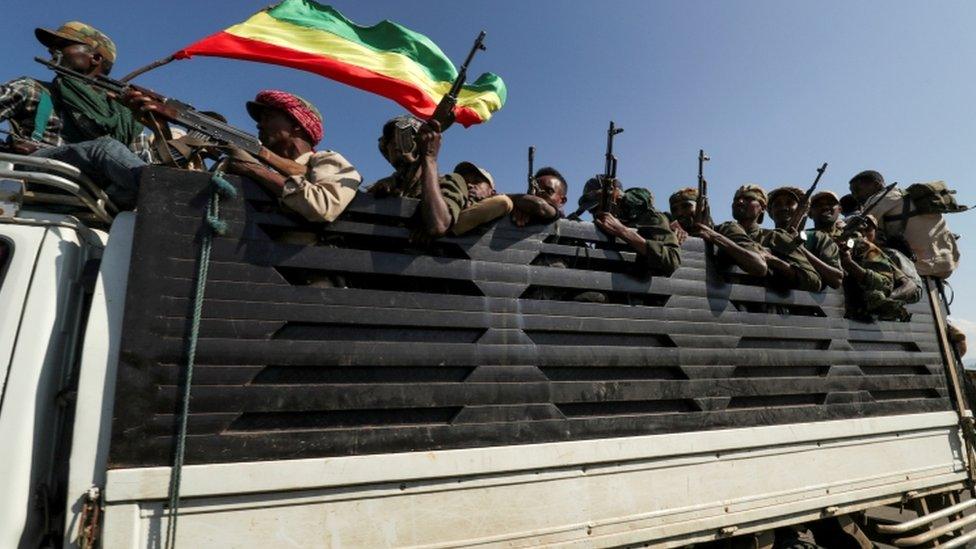Ethiopia's Tigray crisis: Cutting through the information blackout
- Published
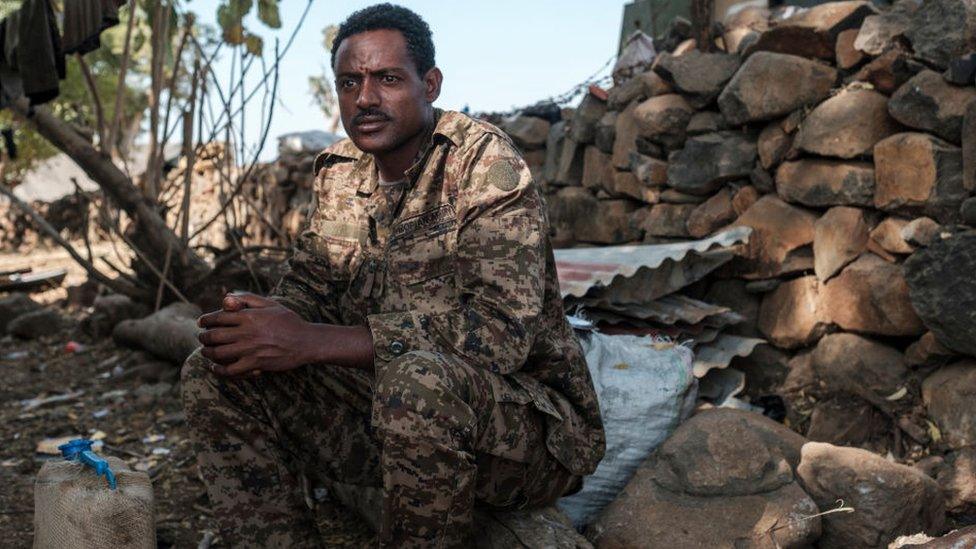
Ethiopian federal soldiers have battled with forces loyal to the TPLF from 4 November
The BBC has managed to speak to some people inside Mekelle, the capital of the Ethiopia's conflict-hit region of Tigray, for the first time since Prime Minister Abiy Ahmed declared an end to the four-week-long military operation.
"It is really scary. It is really difficult. I don't think Tigray has ever been in such a trying time," a desperate-sounding resident of Mekelle shouted down the line.
The BBC has spent days trying to speak to people in the city, which is home to half a million people. The phone lines have been down, and power shortages have meant that establishing a satellite internet connection has been hard.
But we managed to have brief conversations with two people in the city on Wednesday and Thursday evening, who gave their perspective on what has been happening.
We agreed to keep them anonymous for their own safety.
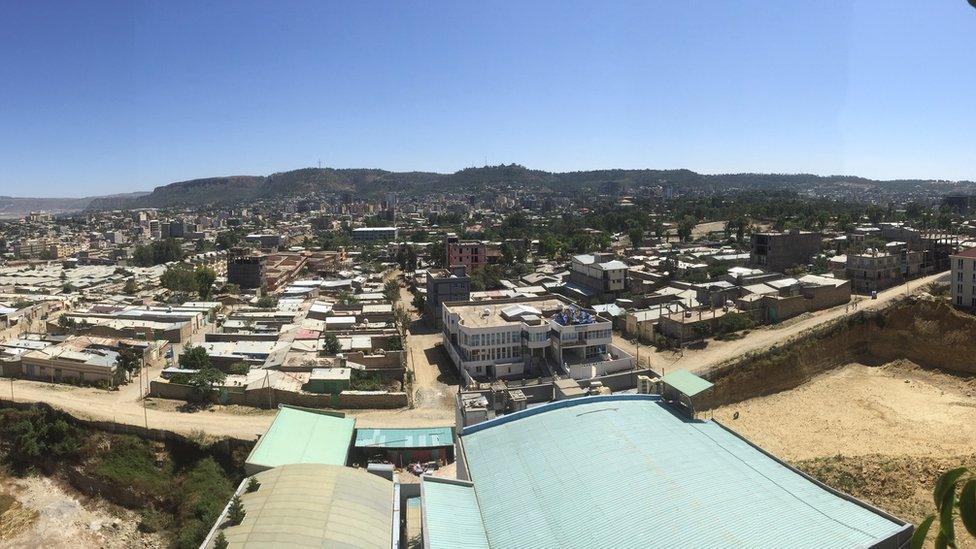
The Tigray region's capital, Mekelle, is a city of 500,000 people
They have been experiencing a lack of basic services since the conflict started on 4 November.
And the two residents said that things have not changed since Ethiopian federal troops entered Mekelle a week ago.
"There is still no electricity, no water and no banking services," one of our contacts said.
"There is no government in the city."
He added that federal soldiers can only be seen in a limited area and in the absence of local police and security forces, looting has become common.
Meanwhile, government-affiliated media has reported that the city is "returning back to normal".
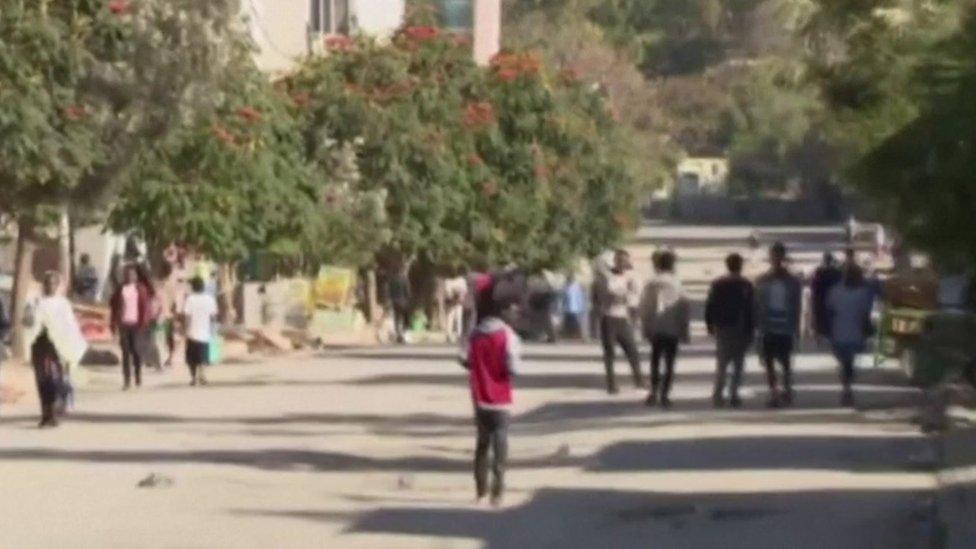
Ethiopian TV has broadcast pictures from Mekelle saying that the situation there is calm
One interviewee on Ethiopian TV (ETV) said that "people are moving about, shops are opening and… we are going to church. Everything is as you can see, very peaceful."
ETV showed pictures of people walking about the streets.
There are also differing perspectives on the impact of the assault on the city.
Last week, before the federal troops entered Mekelle, it was shelled and some residents fled to the outskirts to escape the bombardment.
'Homes destroyed'
On Monday, Prime Minister Abiy appeared in parliament in Addis Ababa and told MPs that "not a single civilian was killed" during the operation.
However our two contacts in Mekelle told the BBC that they had seen wounded and dead civilians in the city's hospitals after the shelling on Saturday.
One of those we spoke to provided a picture of a home destroyed by a shell in a residential area called Ayder Edaga Begie that also killed members of one family.
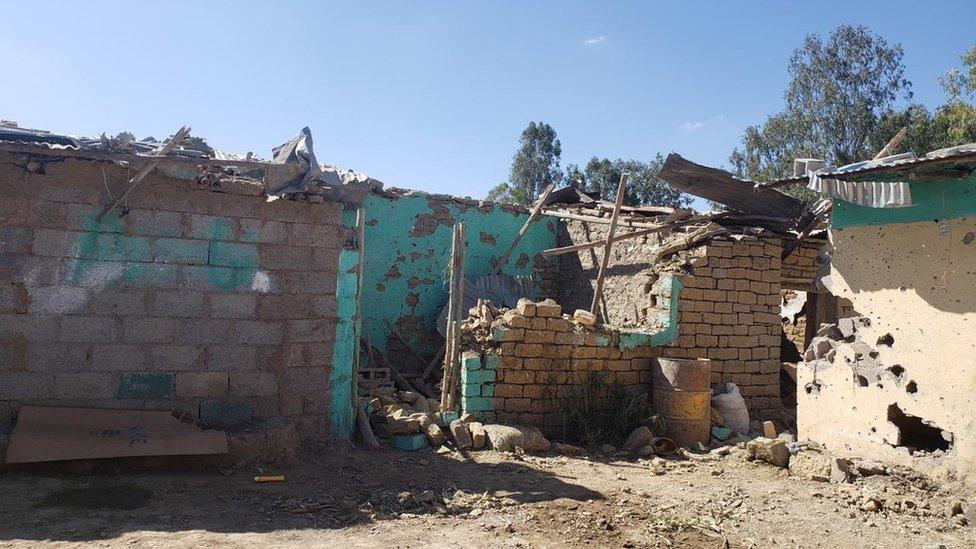
Our contact said that this home in Mekelle was shelled and family members were killed
Responding to these reports, Ethiopia's Minister for Democratisation Zadig Abraha backed the prime minister's view, and told the BBC: "We have completely avoided civilian causalities from our side."
Last week, the International Committee of the Red Cross (ICRC) said that Mekelle's main hospital was "dangerously low" on supplies - including body bags - as it treated the wounded from the fighting around the city.
The ICRC, however, did not give any figures for the numbers injured or dead. Neither did it say whether the victims were civilians or military personnel.
The BBC also managed to speak to someone in the western part of Tigray, where there was heavy fighting earlier last month.
The telecom service has been partially restored in the area.
'Hiding in the bush'
People are still living in fear there, our contact said, alleging that local militia from the neighbouring Amhara region are killing, harassing, threatening and displacing ethnic Tigrayans.
"I have tried to cross to Sudan, they blocked us. We are in a difficult position. It is almost like we are in prison. Some people have nothing to eat hiding in the bush," he said.
"We are spending the day in bush. There is no-one to protect us. We have left our farms behind. Our cattle are left scattered on the fields."

Find out more about the Tigray crisis:
Three consequences of the ongoing crisis in Tigray

Last month, the Ethiopian Human Rights Commission reported on the massacre of at least 600 people in the town of Mai-Kadra. It said that ethnic Amhara people had been targeted by Tigrayan youths backed by the local Tigray People's Liberation Front (TPLF) administration in what it said could amount to a war crime.
The TPLF has denied involvement.
The two Mekelle residents also told the BBC that fighting was still going on near the city on Wednesday and Thursday.
They described sounds of heavy fire come from the west and south.
But Mr Zadig said "there is no war", adding that the TPLF "has no more military capacity to conduct a war" and the federal forces now need to apprehend its leadership.
The TPLF maintains that fighting is continuing, saying that they are defending their region from "invaders".

- Published25 November 2020
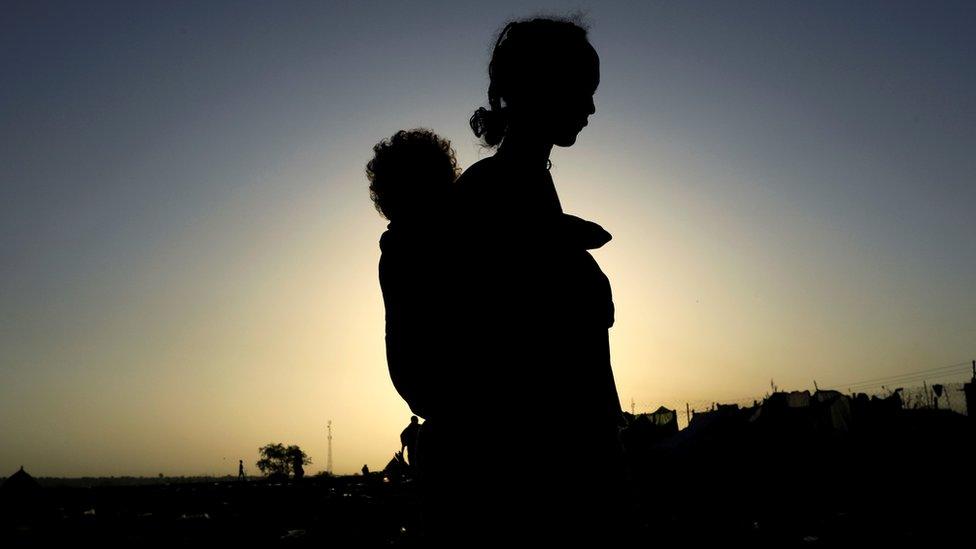
- Published28 November 2020
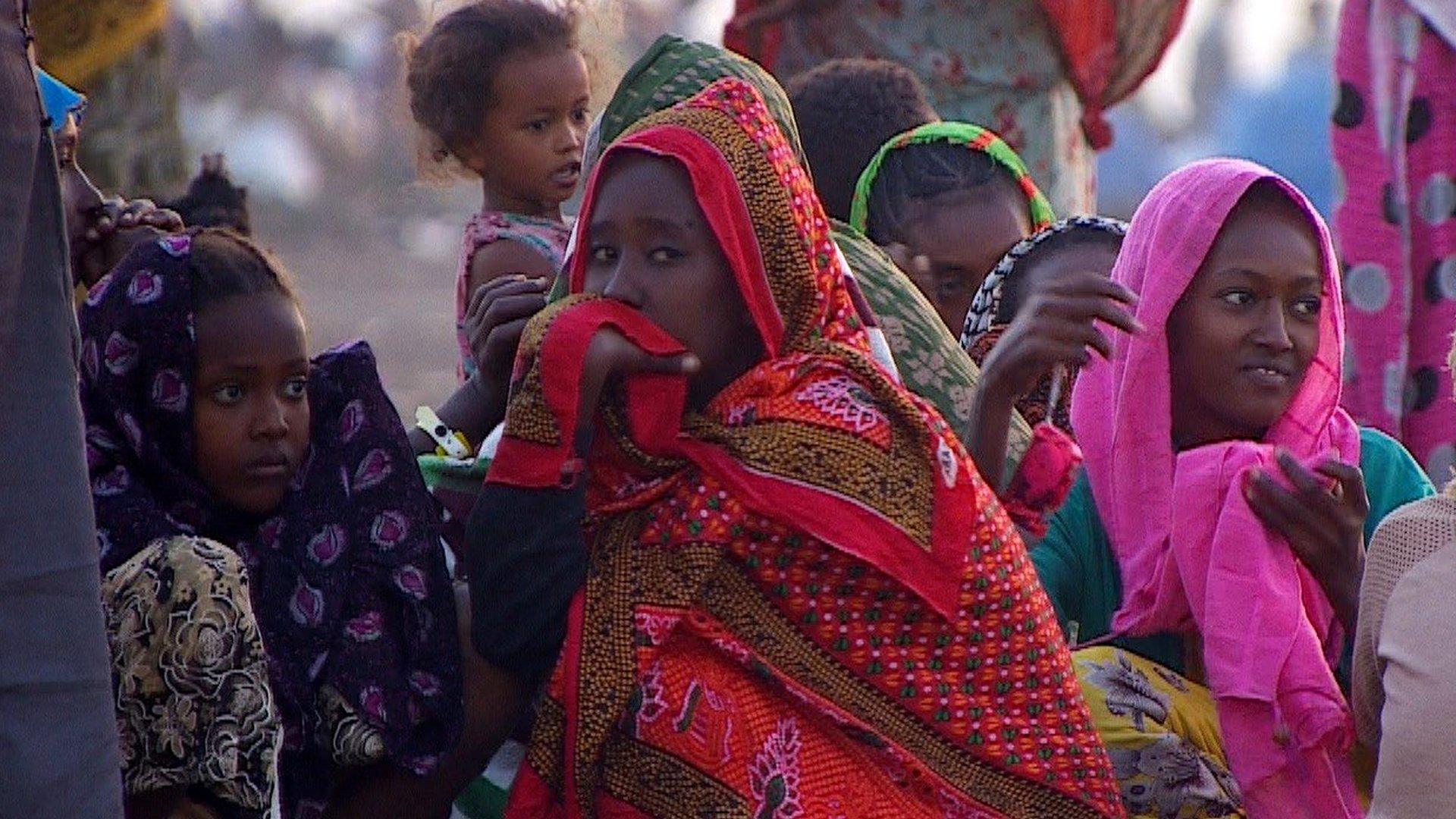
- Published13 November 2020
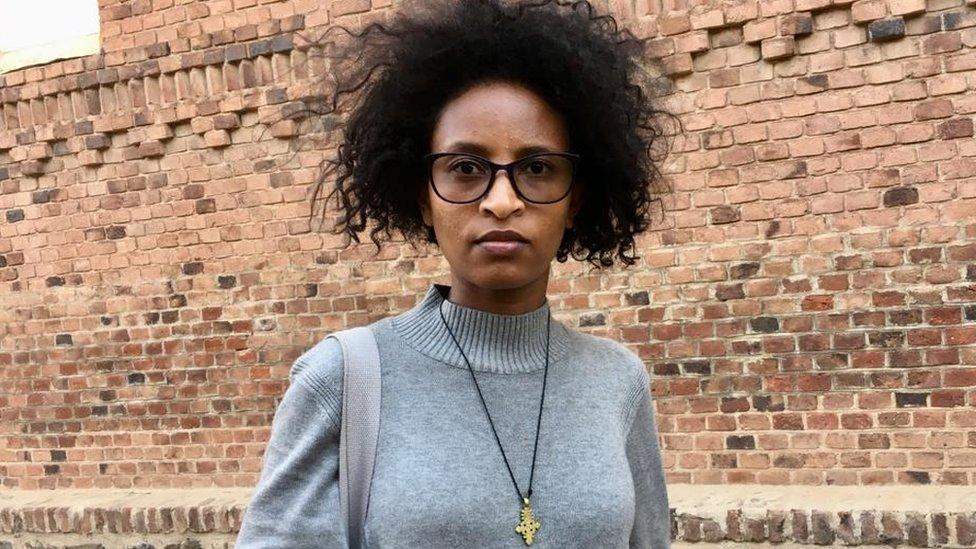
- Published29 November 2020
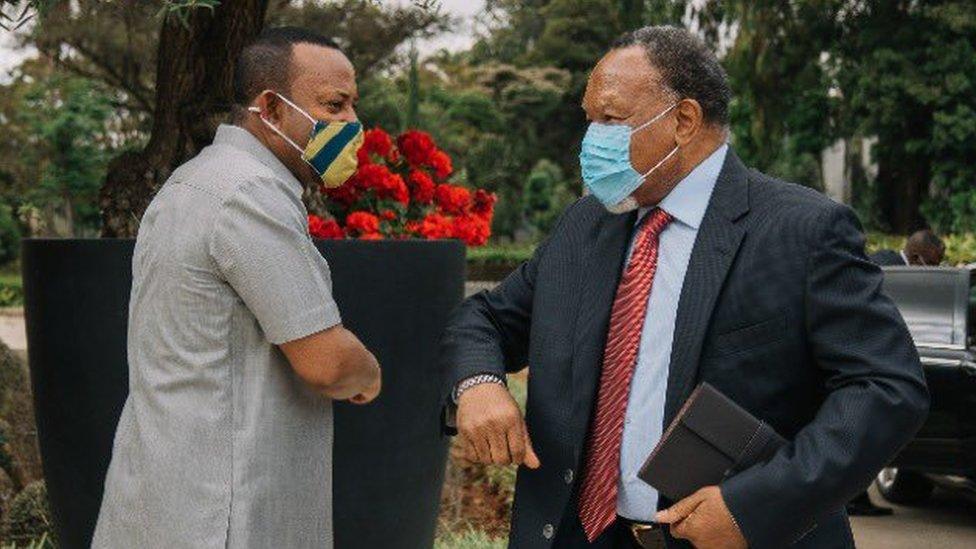
- Published27 November 2020
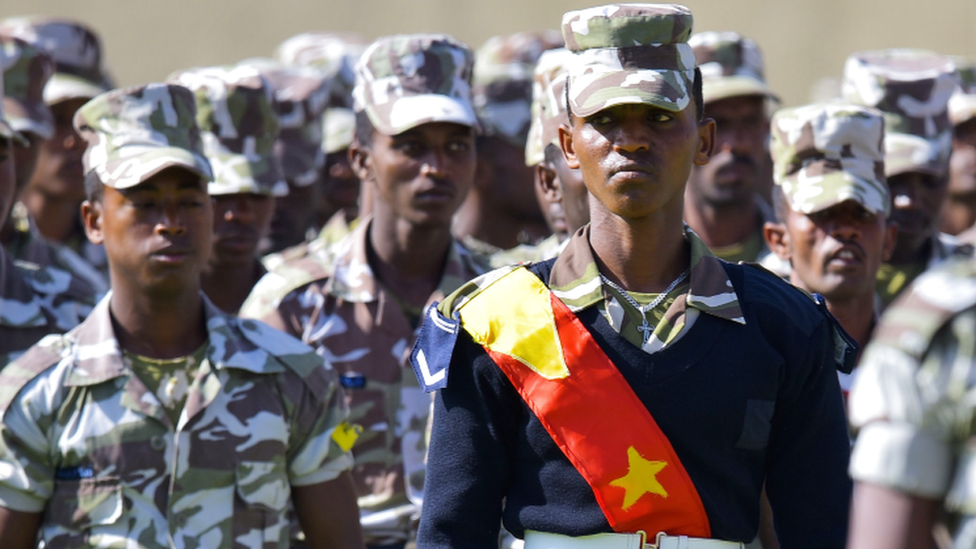
- Published29 June 2021
